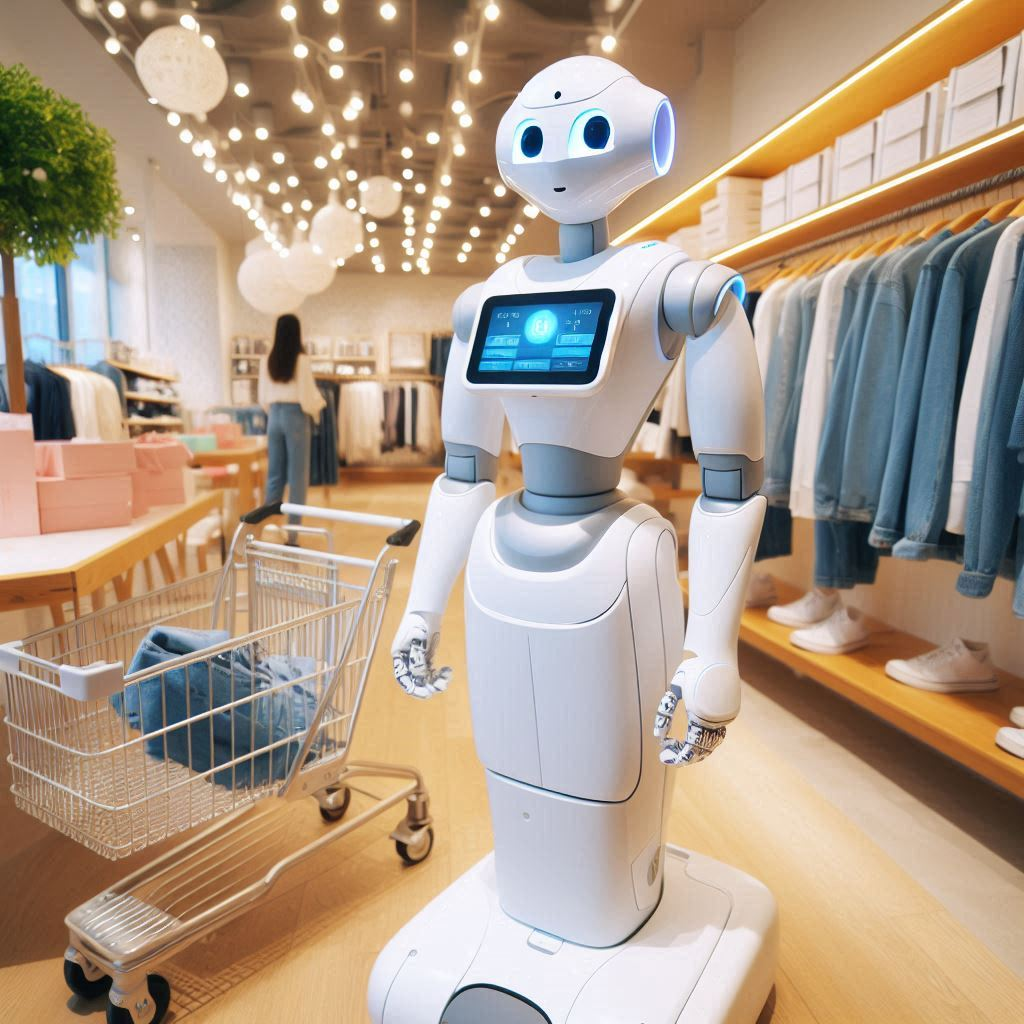
Artificial Intelligence (AI) is revolutionizing the retail industry, offering retailers innovative tools and strategies to enhance customer experiences, optimize operations, and drive business growth. From personalized shopping recommendations and virtual try-ons to inventory management and supply chain optimization, AI-powered solutions enable retailers to stay competitive in a dynamic marketplace. Here’s how AI is transforming retail and empowering businesses with advanced capabilities:
AI algorithms analyze customer data, purchase history, and browsing behavior to deliver personalized product recommendations and promotions. Retailers can use AI-driven recommendation engines to enhance cross-selling opportunities, increase average order values, and improve customer satisfaction through tailored shopping experiences that resonate with individual preferences.
AI-powered virtual try-on technologies and AR applications allow customers to visualize products in real-world settings before making purchase decisions. Retailers can use AI-driven AR solutions to enable virtual fitting rooms, showcase product features, and enhance engagement by providing immersive shopping experiences that bridge online and offline retail channels.
AI-driven inventory management systems use predictive analytics and machine learning algorithms to optimize stock levels, prevent stockouts, and reduce overstocking. Retailers can leverage AI-powered demand forecasting tools to anticipate customer demand, adjust inventory replenishment strategies, and minimize carrying costs while ensuring product availability to meet fluctuating market demands.
AI algorithms analyze competitor pricing strategies, market trends, and consumer demand signals to optimize pricing decisions in real-time. Retailers can use AI-driven dynamic pricing solutions to adjust prices dynamically based on competitive benchmarks, seasonality, and customer preferences, maximizing revenue and maintaining competitive advantage in the marketplace.
AI-powered chatbots and virtual assistants provide instant customer support, answer product inquiries, and resolve issues through automated interactions. Retailers can deploy AI-driven chatbot solutions to handle customer inquiries, process orders, and deliver personalized recommendations, enhancing customer service efficiency and improving overall satisfaction.
AI technologies optimize supply chain operations by analyzing transportation routes, inventory flows, and warehouse management processes. Retailers can use AI-powered logistics solutions to streamline distribution networks, reduce transportation costs, and improve delivery efficiency through optimized route planning, inventory tracking, and predictive maintenance.
AI-driven sentiment analysis tools monitor social media channels, customer reviews, and online feedback to gauge brand sentiment and customer satisfaction levels. Retailers can use AI-powered sentiment analysis platforms to capture actionable insights, identify emerging trends, and proactively address customer concerns to enhance brand reputation and loyalty.
By embracing AI technologies in retail, businesses can transform customer experiences, streamline operations, and achieve sustainable growth in a competitive retail landscape. AI-powered solutions empower retailers to leverage data-driven insights, automation, and personalized engagements to deliver value and exceed customer expectations in an increasingly digital-driven retail environment.
FAQ’s
1. How does AI enhance personalized shopping experiences? AI algorithms analyze customer data, purchase history, and browsing behavior to deliver personalized product recommendations and promotions. Retailers use AI-driven recommendation engines to boost cross-selling, increase average order values, and improve customer satisfaction with tailored shopping experiences.
2. What benefits do AI-powered virtual try-on and AR technologies offer? AI-powered virtual try-on and AR applications let customers visualize products in real-world settings before purchasing. Retailers use AI-driven AR solutions for virtual fitting rooms and showcasing product features, enhancing engagement with immersive shopping experiences that connect online and offline channels.
3. How does AI improve inventory management and demand forecasting? AI-driven inventory management systems use predictive analytics to optimize stock levels, prevent stockouts, and reduce overstocking. Retailers leverage AI demand forecasting tools to anticipate customer demand, adjust replenishment strategies, and minimize carrying costs while ensuring product availability.
4. What role does AI play in dynamic pricing and competitive intelligence? AI algorithms analyze competitor pricing, market trends, and consumer demand to optimize pricing decisions in real-time. Retailers use AI-driven dynamic pricing solutions to adjust prices based on benchmarks, seasonality, and preferences, maximizing revenue and maintaining a competitive advantage.
5. How do AI-powered chatbots improve customer service? AI-powered chatbots and virtual assistants provide instant customer support, answer inquiries, and resolve issues through automated interactions. Retailers deploy AI-driven chatbots to handle customer inquiries, process orders, and deliver personalized recommendations, enhancing service efficiency and satisfaction.
6. How can AI optimize supply chain operations and logistics? AI technologies optimize supply chain operations by analyzing routes, inventory flows, and warehouse processes. Retailers use AI-powered logistics solutions to streamline distribution networks, reduce transportation costs, and improve delivery efficiency with optimized route planning and inventory tracking.
7. What is the importance of AI-driven sentiment analysis and customer insights? AI-driven sentiment analysis tools monitor social media, reviews, and feedback to gauge brand sentiment and satisfaction. Retailers use AI sentiment analysis platforms to capture actionable insights, identify trends, and proactively address concerns, enhancing brand reputation and loyalty.